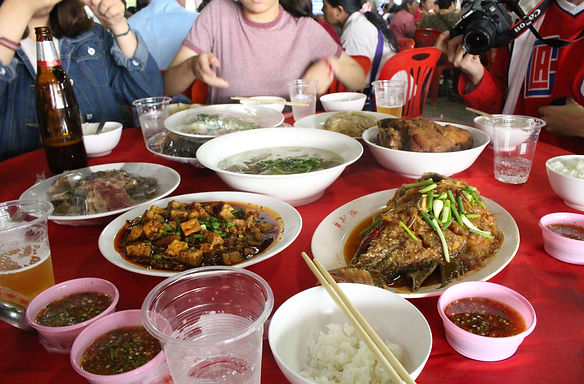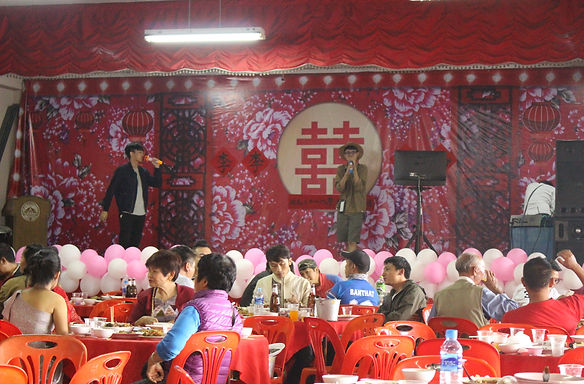
The wedding in Mae Salong
By Sun, Wen-Ling ─2018 Summer
In Chinese tradition, marriage is one of the most important part in our life, and the wedding is the very essential ceremony for the couple and their families to start their marriage.
Due to the special location, which is lying on Thailand’s northern mountain, and near the Thai-Myanmar border, Mae Salong is a district with special history background. After the 1949 Chinese revolution, the 93rd Regiment of the Kuomintang fled from Yunnan to Thailand, and with the ex-soldiers’ efforts, they finally got the Thailand government’s permission to settle down in Mae Salong legally. Thus, people here are most Yunnanese, which are the descendants of the ‘’lost army’’. Besides, there are also many ethnic minorities, such as Akha and Dai. It’s quite obvious that the population structure here is very distinctive from other place of Thailand, which resulted in the communication of different culture, and made Mae Salong become such a district with unique life style.
In Mae Salong, the most usual type of wedding is traditional Yunnanese wedding. Generally, it’s quite similar with the traditional wedding in Taiwan. There are three main parts of the whole wedding process: the proposal, escorting the bride on the wedding day and the wedding banquet.
First of all, when the couple decide to get marriage, the groom has to visit the bride’s family to formally ask for their permission to marry. They will have a meal together, then select an auspicious wedding date according to the couple’s birthday and the Chinese calendar. The groom’s family has to present ‘’betrothal money’’ for the bride’s family as a proposal gift. Comparing to the amount of the money, the number’s meaning is much more important. In tradition, the number six and eight are both lucky numbers, because of their Chinese pronunciation. Thus, six thousand and six hundred baht or sixty-six thousand baht are usual amount. On the other hands, the bride’s family will also prepare dowry, including duplicate bed quilt, pillows and suitcase.
Next, on the wedding day, the bridegroom has to set out to the bride’s home with two blankets of gift, including wine, rice, tea…etc. The gifts will be wrapped in red cloth, symbolizing good fortune. Before meeting the bride, the groom will be block at the door by the bride’s families and friends inevitably. He has to prepare red envelopes for them in order to get in the room smoothly. After the couple arrive the groom’s home, they will perform the formal wedding ceremony, called ’’ baitang’’ in Chinese, which represents paying their homage to god and earth, appreciating their parents and promising each other.
Third, there will be wedding banquets, respectively hold in the bride’s and the groom’s home. All of the couple’s families and acquaintances will present to enjoy the feast and celebrate. The usual dishes include appetizer platter, silky chicken and pig feet stew. Different from the Taiwan tradition, the couple will not change the gown toast to every table, they will just get on the stage and toast to their family and friends to show their appreciation. After that, the wedding process is formally done.

↑The couple was on the stage and toasted to their guests

↑The common dishes at the wedding banquet
Reflect on the days we were in Mae Salong, we have luckily been invited to join two weddings. That were really special and precious experiences for us. It’s so amazing to find that there is a place where is so far away from our hometown, with a group of people who have the same ancient with us and hold their wedding in the same way, and we were so honor to have the chance to be a part of the special day.

↑Our teammates were singing to the couple at the wedding


